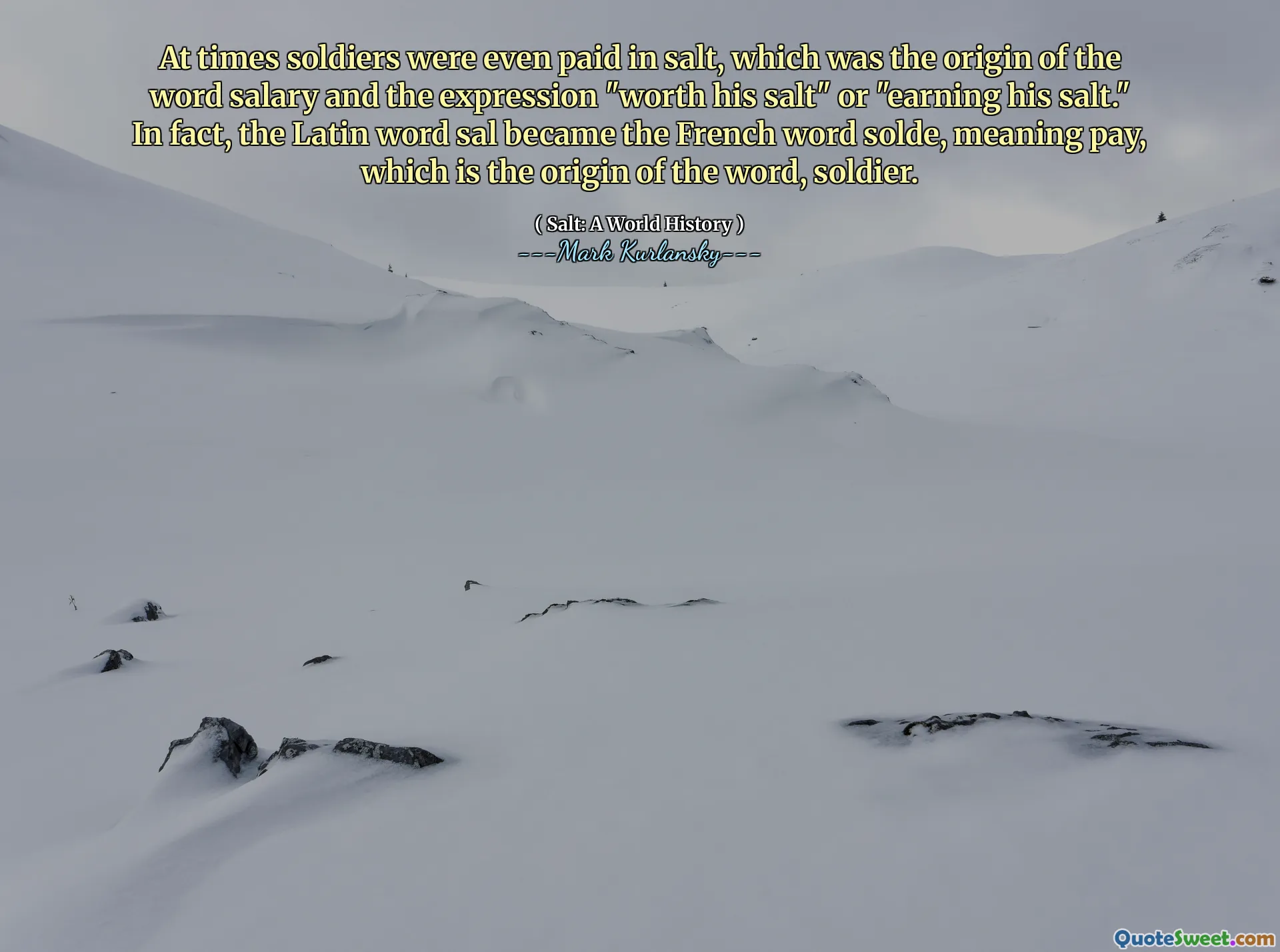
At times soldiers were even paid in salt, which was the origin of the word salary and the expression "worth his salt" or "earning his salt." In fact, the Latin word sal became the French word solde, meaning pay, which is the origin of the word, soldier.
[Markdown format] The quote highlights the fascinating historical connection between salt and human value, especially in the context of soldiers' compensation. Salt, often considered a mundane mineral today, once held immense economic and strategic importance. Its ability to preserve food made it a vital resource in times when food preservation was essential for armies and seafarers, often making it as valuable as gold in certain societies.
The idea that soldiers were sometimes paid in salt underscores the material significance of this mineral. The slang expressions "worth his salt" and "earning his salt" reflect the idea of worth and fair compensation, directly linking linguistic evolution to how societies perceived the value of their personnel. This etymology reveals much about how economic tools influence language and culture.
Furthermore, the etymological journey from Latin "sal" to French "solde" and then to the English "salary" underscores the interconnectedness of language and history. It illustrates how a seemingly simple term encapsulates a complex socio-economic history involving trade, warfare, and resource management.
This also prompts reflection on how commodities like salt shaped human civilization beyond mere necessity—they influenced language, economics, and social structures. The importance of such resources underscores the idea that what we often take for granted daily has historically played crucial roles in shaping societies.
Understanding this history enriches our appreciation for the language we use and the economic systems we navigate today, highlighting that our current definitions and expressions are rooted in centuries of human experience and resource valuation. It reminds us of the profound ways in which basic commodities can leave enduring marks on our culture and language.
'-Salt: A World History-' by Mark Kurlansky offers a vivid exploration of this vital mineral's extensive history, revealing its central role in economics, politics, and everyday life throughout human history.






